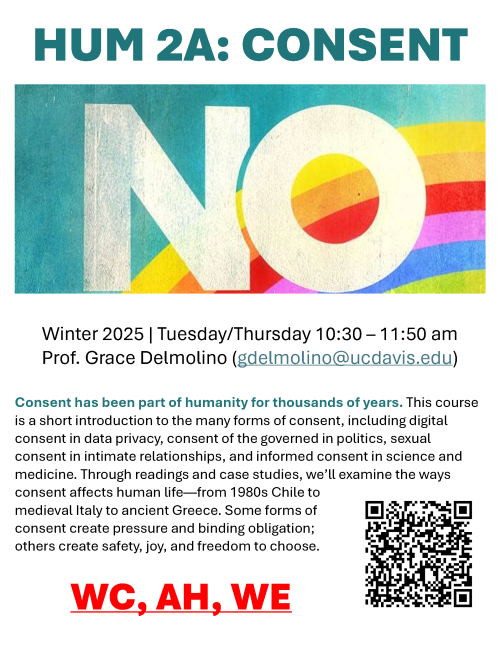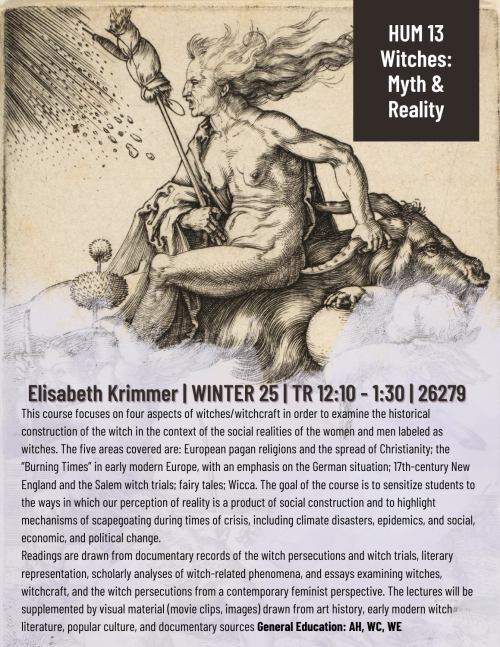Winter Quarter 2025
- For day, time, room, and TA information, see our PDF Schedule or the class search tool https://registrar-apps.ucdavis.edu/courses/search/index.cfm.
- For all courses not described here, please refer to the General Catalog course descriptions: https://catalog.ucdavis.edu/courses-subject-code/hum/
HUM 002A Global Humanities: Consent
Prof. Grace Delmolino
The presence of consent is what distinguishes sex from rape, democracy from dictatorship, surgery from assault, employment from slavery. Consent is often treated as an individual, personal choice, but it's not always that straightforward. Apps on your phone collect data about your interests, health, and personal life—you agreed to this by default when you installed the app, but did you really consent? For millennia, people have attempted to define consent in philosophy, literature, and law; we will use a humanistic approach to analyze the different forms of "consent" as this concept appears in data privacy, medicine, government, sex, bioethics, and more. Our interdisciplinary exploration of consent will take us through various world cultures, ranging from medieval Italy to 1980s Chile to the present-day Maori in New Zealand. “Consent” is often viewed as an abstract philosophical notion, but by studying these many forms of consent, we will see how the meaning of consent changes dramatically across different global contexts.
GE credit AH, WC, WE

HUM 13. Witches: Myth and Historical Reality
Prof. Elisabeth Krimmer
This course focuses on four aspects of witches/witchcraft in order to examine the historical construction of the witch in the context of the social realities of the women and men labeled as witches. The five areas covered are: European pagan religions and the spread of Christianity; the “Burning Times” in early modern Europe, with an emphasis on the German situation; 17th-century New England and the Salem witch trials; fairy tales; Wicca. The goal of the course is to sensitize students to the ways in which our perception of reality is a product of social construction and to highlight mechanisms of scapegoating during times of crisis, including climate disasters, epidemics, and social, economic, and political change.
Readings are drawn from documentary records of the witch persecutions and witch trials, literary representation, scholarly analyses of witch-related phenomena, and essays examining witches, witchcraft, and the witch persecutions from a contemporary feminist perspective. The lectures will be supplemented by visual material (movie clips, images) drawn from art history, early modern witch literature, popular culture, and documentary sources.
GE credit AH, WC, WE

